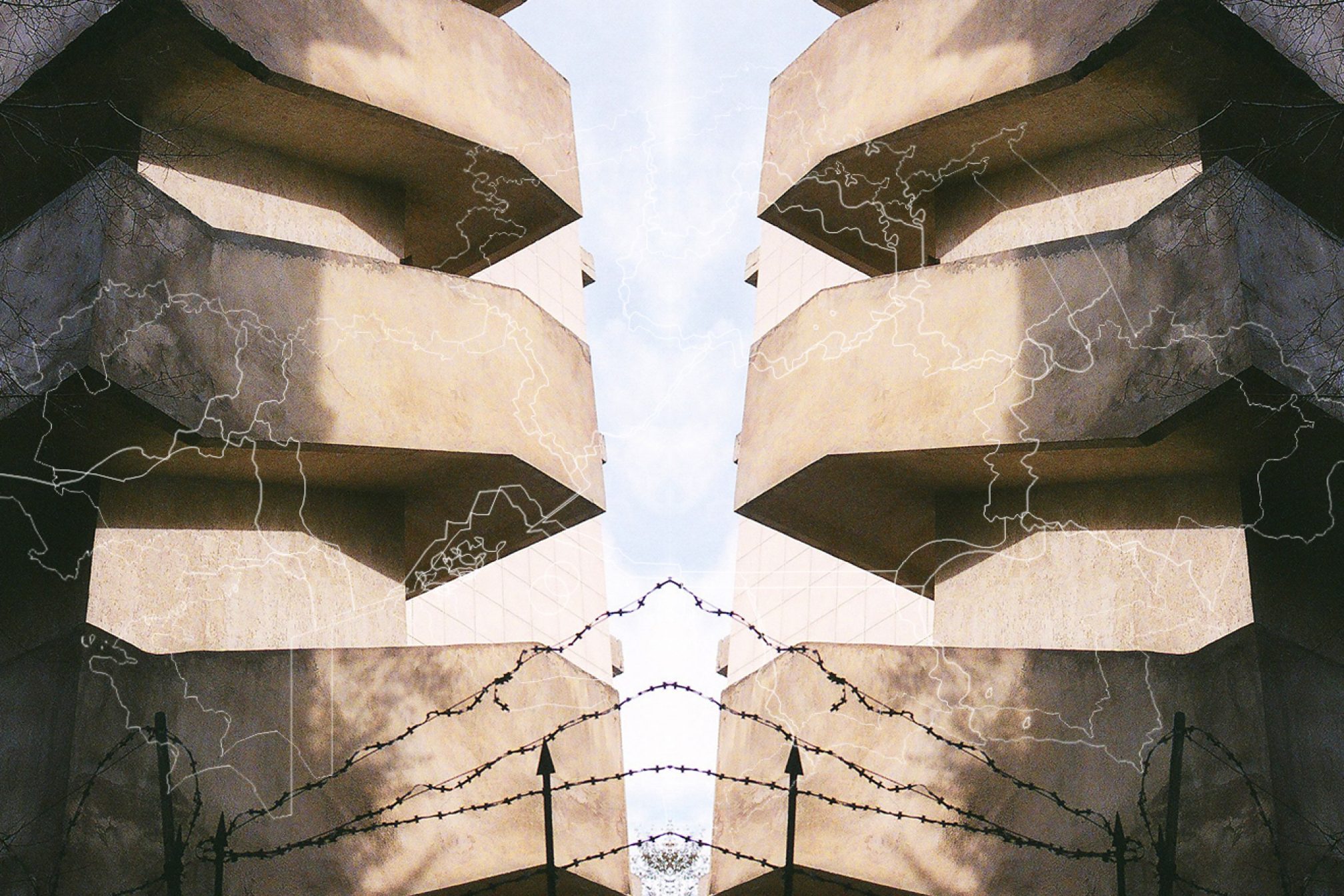 Scene reports
Scene reports
The New East: Kazakhstan’s underground is on the map
Meet the artists building the culture
The decline of the Soviet Union in the years leading to its dissolution in 1991 sparked dynamic change in Europe. Cultural revolutions arose from flashpoints like the fall of the Berlin Wall at the fringe of the crumbling empire, spreading inwards as the grey veil of the Iron Curtain receded. For many it was the de facto start of the 21st century, signalling a new era. But closer to the core of the former Eurasian superstate, the grip of history remained tighter.
In Kazakhstan, cultural sparks have struggled to ignite on a wider scale, amid hallmark attitudes and practices of the Soviet period lingering on into the modern day. As time marches forward and generations shift, though, change is afoot.
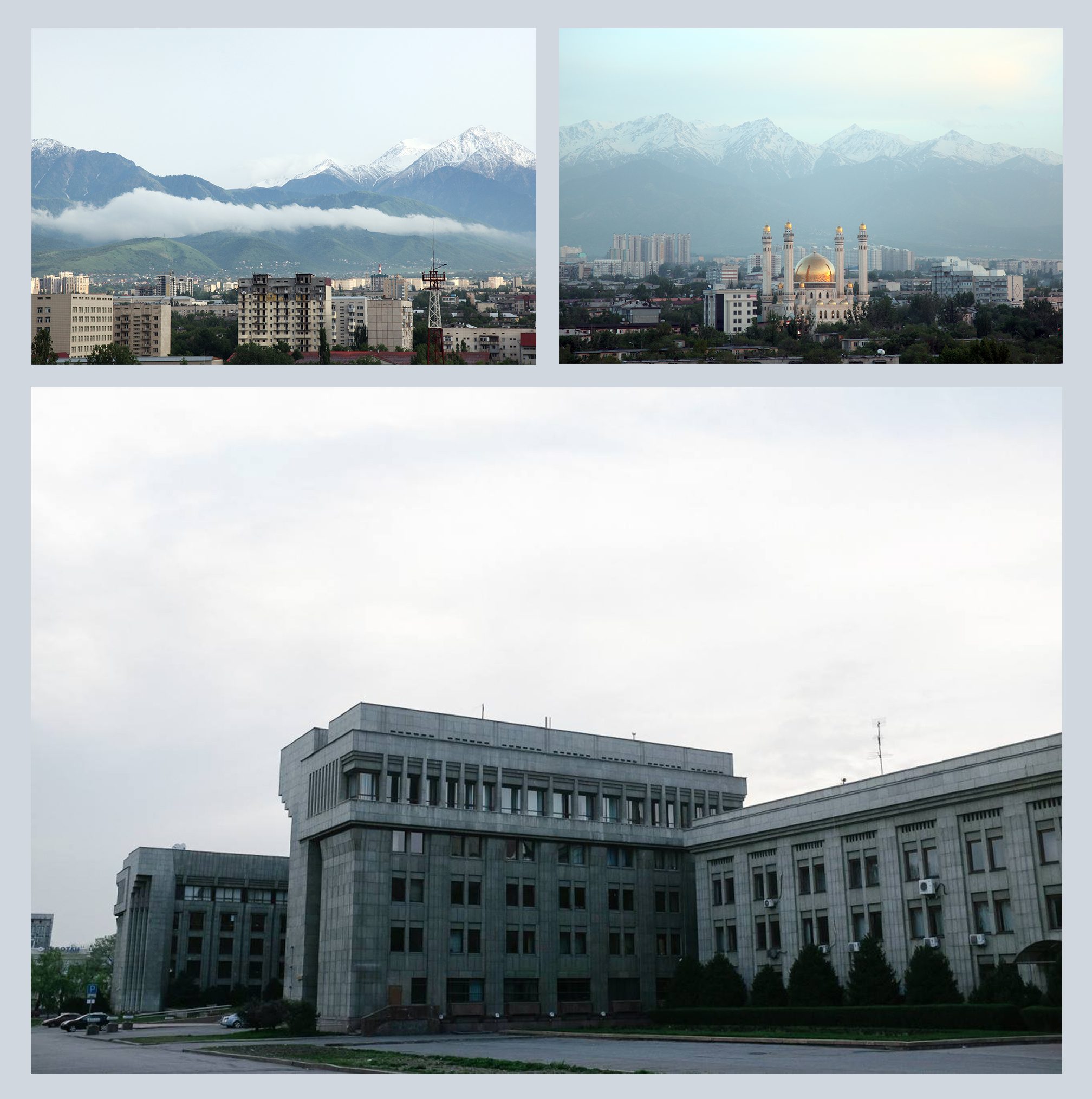
Nazira Kassenova is tapping into the increasing hunger for fresh experiences in the country to develop its electronic music scene. By day she works in agriculture, at night she’s in charge of throwing the nation’s most exciting party, ZVUK, helping to incubate a move towards forward-thinking sounds in Kazakhstan’s most populous city Almaty.
Kazakhstan’s underground has seen occasional spikes over the years; clubs such as Da Freak, My Town and Cream showcased interesting music in the mid-2000s. But the scene was reliant on the energy of a small number of individuals. When their activity tailed off, it was wiped out. Now, a revival is underway. More people who have only known a post-Soviet world in their lifetime are coming of age, and the conditions for establishing something sustainable are ripening.
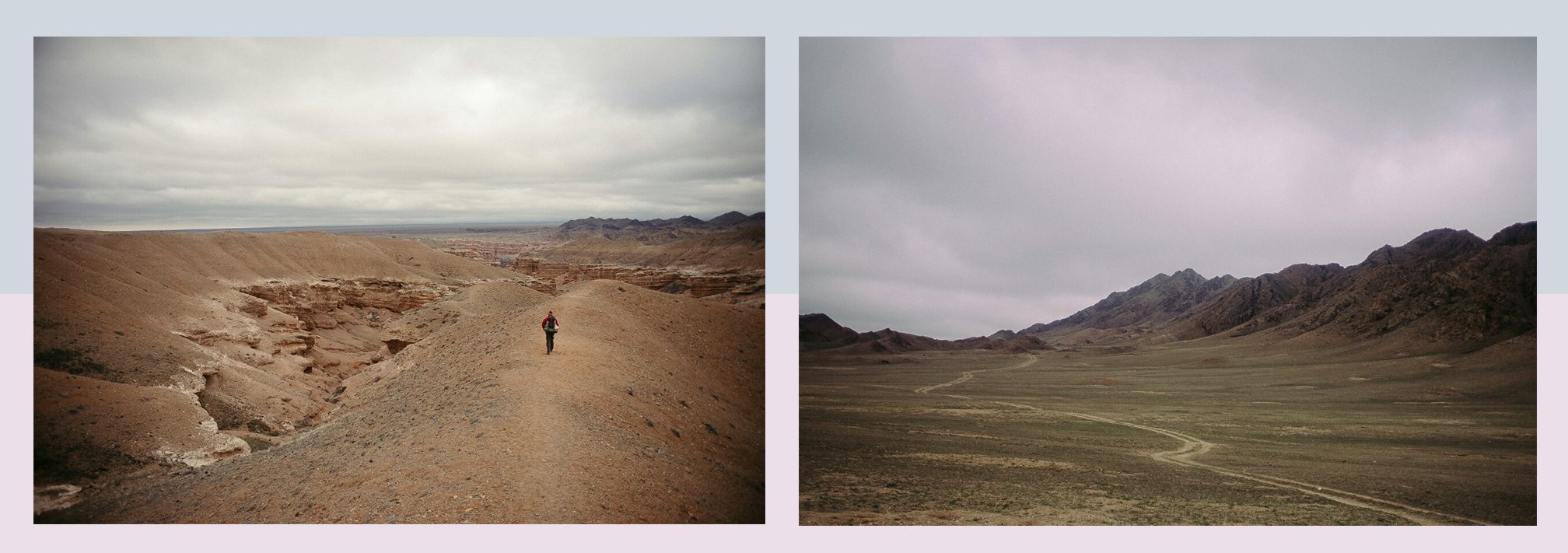
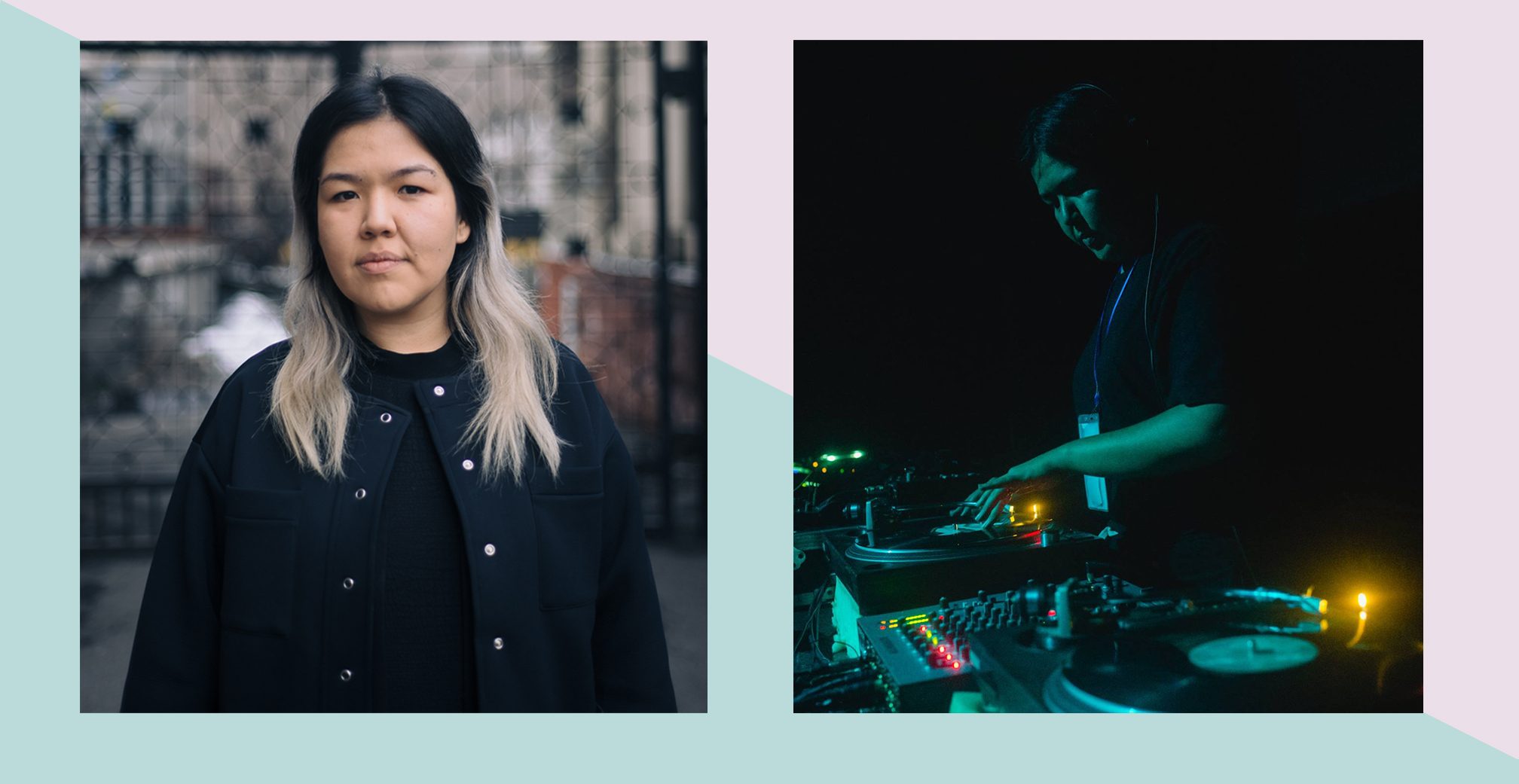
Nazira launched ZVUK in August 2016, following stints working with minimal techno party Vzletnaya and the genre-mashing Bass Place. ZVUK has become a vital hub for experimental sounds, showcasing artists starved of opportunities to perform amid the glut of karaoke bars and commercial clubs dominating Almaty.
“You know how when you go to a club in Europe, it's not just music, it's culture? People don't think of clubs as a cultural phenomenon in Kazakhstan,” says Nazira. “With ZVUK I want to form this experience, so people see the difference between going to get drunk, and going to listen to good music.”
Although she refers to ‘clubs’, ZVUK is a DIY operation that involves hiring a sound system to pack inside non-traditional locations. “I'll be honest, it's on the ground of being illegal,” admits Nazira. This is a symptom of the lack of credible nightspots in Almaty willing to host an event playing avant-garde electronic music. It’s also an aesthetic choice.
“When you are trying to form a culture you need a clean canvas. If you go to a club with leather chairs that was playing Britney Spears songs the day before, then you cannot really put on something different - people will not understand that it's different,” says Nazira. “But when you have a space which is unused then people can actually feel that it's something different, you can do whatever the hell you want there.”
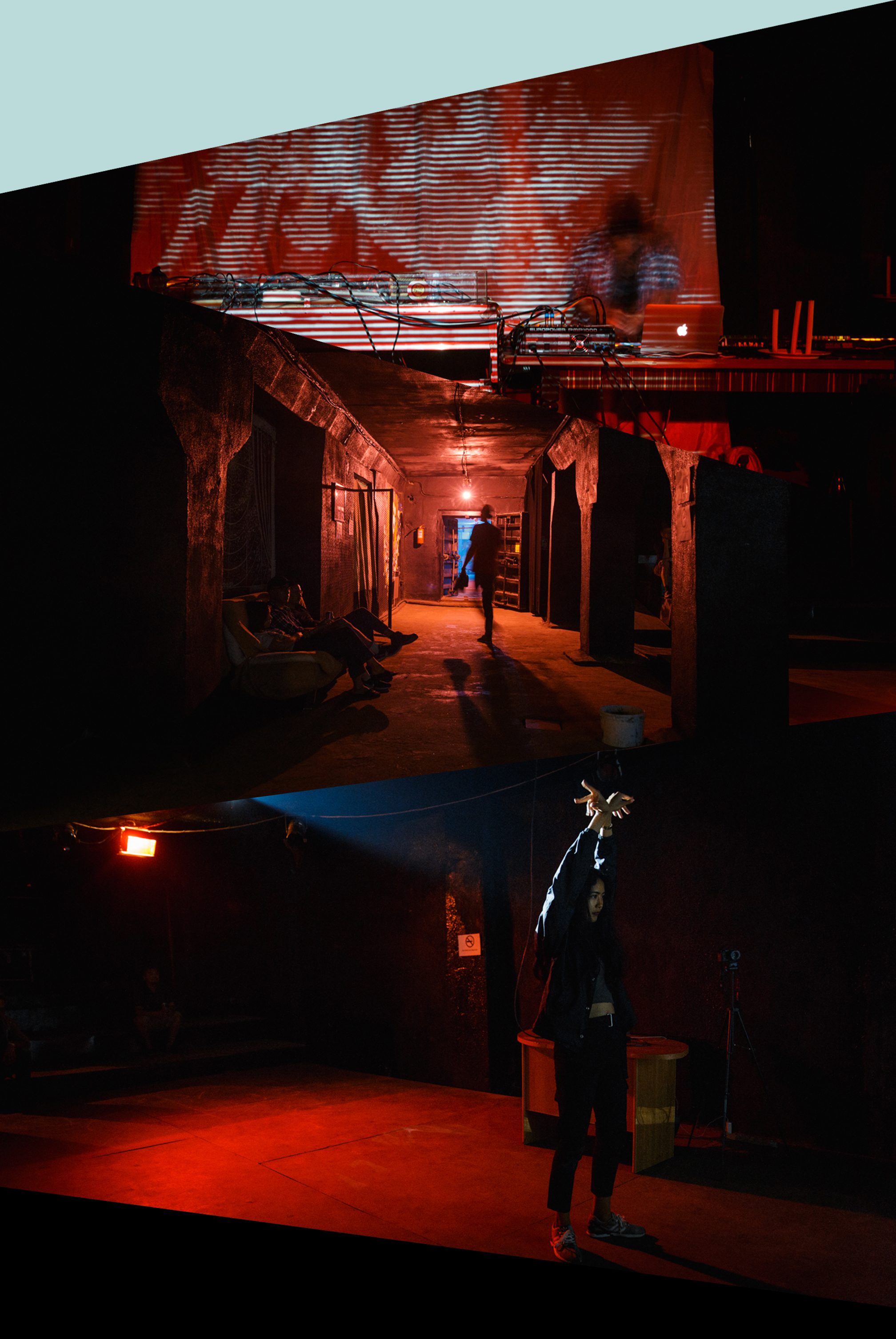
The first party took place inside a World War II bunker surrounded by residential housing. Attendees had to gather quietly on a street corner before being directed to the entrance, militantly shushed en route for fear of unwanted attention. “It felt like we were in some kind of cult or something!” laughs Nazira. Once in at 11pm, there was no stepping foot back outside into the open air unless you were leaving for good. Many stayed until the 6am close, transforming the bare room into a vibrant sweatpit. No longer needed as a shelter from international conflict, the bunker was transformed into a haven from the sterility of Almaty’s mainstream nightlife.
Since its launch, ZVUK has hosted parties in the canteen of a factory, a former strip club, and recently settled inside a small warehouse for a number of events. There are struggles that come hand in hand with the DIY approach. Haggling for prohibitively expensive sound system hire is a customary process. “And it's never a perfect sounding system, you don't have Funktion-One or Void, but we try to do what we can.”
Despite the costs, ZVUK regularly hosts free parties to make it more accessible. “Even ₸1,000 tenge - it's like two pounds - can be too expensive for some people, especially if it's an eighteen year old. But I want that eighteen year old to come, I want them to be there if they want to,” says Nazira. Greater openness allows ZVUK to present its ideas to a wider audience, aiming to align attitudes with the party’s vision. “ZVUK is about ZVUK,” asserts Nazira, “we don't make money.”
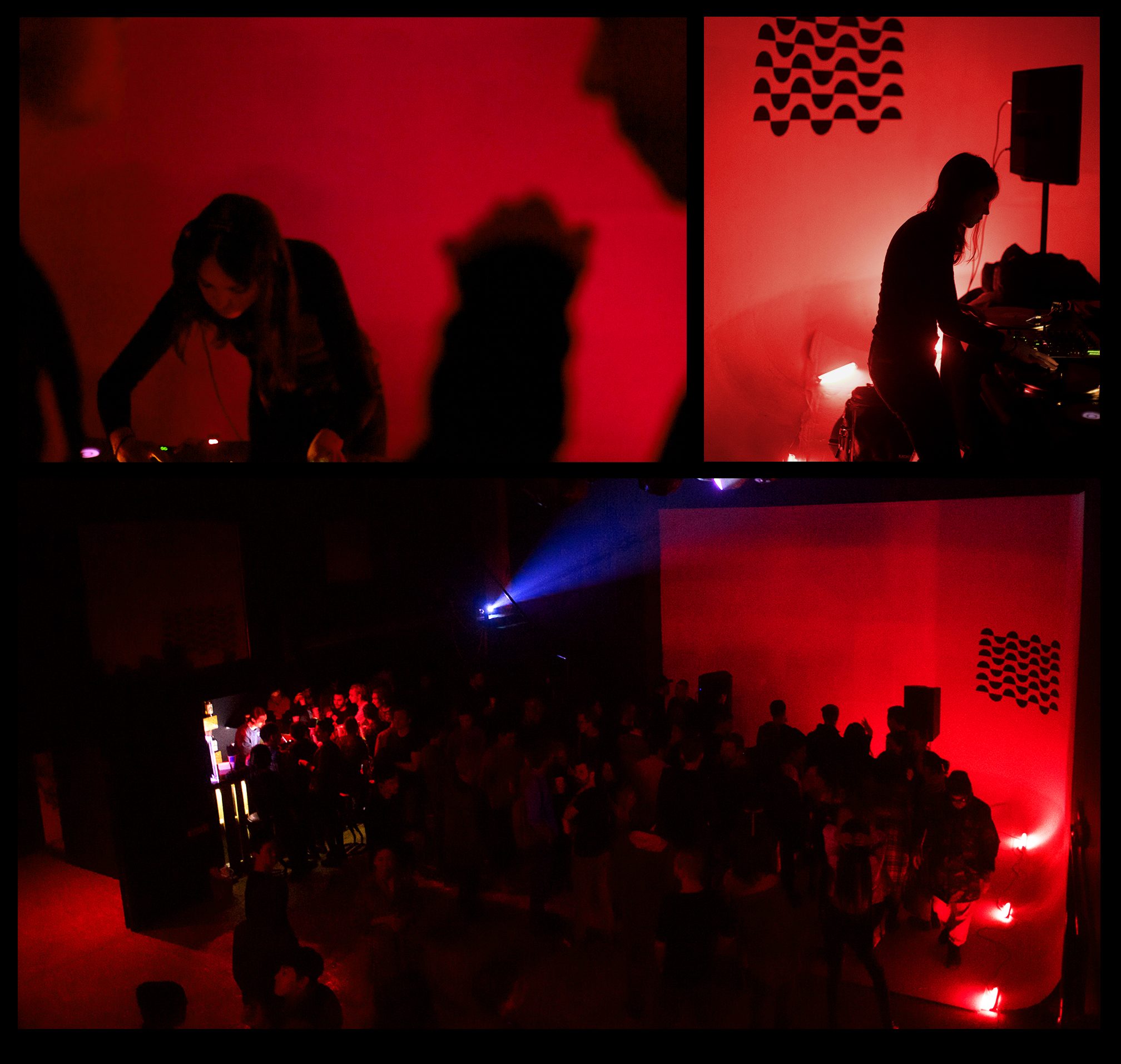
One expectation in Almaty is DJs play for around 90 minutes and “pump it out”, otherwise people leave. Often ZVUK’s free parties showcase two DJs playing three hour sets. “We are trying to implement the concept of longer sets. I really want for people to understand that there is variety to music and you have to stick with the DJ. My aim goal is to have one DJ play the whole night,” says Nazira.
Artists who have played include homegrown musicians Arys Arenov, Konstantin Bazhanov, Light Monday and the2vvo, as well as international talents such as Kiev’s Closer club resident Borys and Sybil of London collective SIREN. The sounds aired are predominantly acid, electro and broken techno in the Bristol mould, while artists playing ambient improvisations, new wave and drum ‘n’ bass have also performed.
Often these styles are meshed with Central Asian motifs, forming distinct fusions. Arys Arenov, who produces under the name Aresibo, combines Eastern melodies with influence from psychedelic pop and disco artists such as Ariel Pink and Todd Terje to create music that bursts with kaleidoscopic colour. In his words, the combination brings qualities of “authenticity, mysteriousness, reminiscence.”
Nazira also regularly tries to bring through fledgling artists to help them learn the ropes and sow the scene’s expansion. “I have a guy who's going to play soon hopefully who has really good taste. He cannot mix but I couldn't mix at some point in my life. I am trying to get new people who want to be DJs for good reasons - because they love music, not because they want to be cool.”
Nazira is only too aware how important a little encouragement could be for young people. Although she showed a flair for music from a young age, her parents came from very conservative families and wanted her married with children by her early twenties, dissuading her away from musical activities.
When she first revealed her DJing and party throwing pursuits her mother cried. “She said ‘I'm ashamed of you’ which I remember to this day. Growing up in a small town as an only child, my family was everything to me. It was gutting, and a super difficult decision for me to keep doing what I do. But at some point I just decided I will. I think that really shows how important this is to me.”
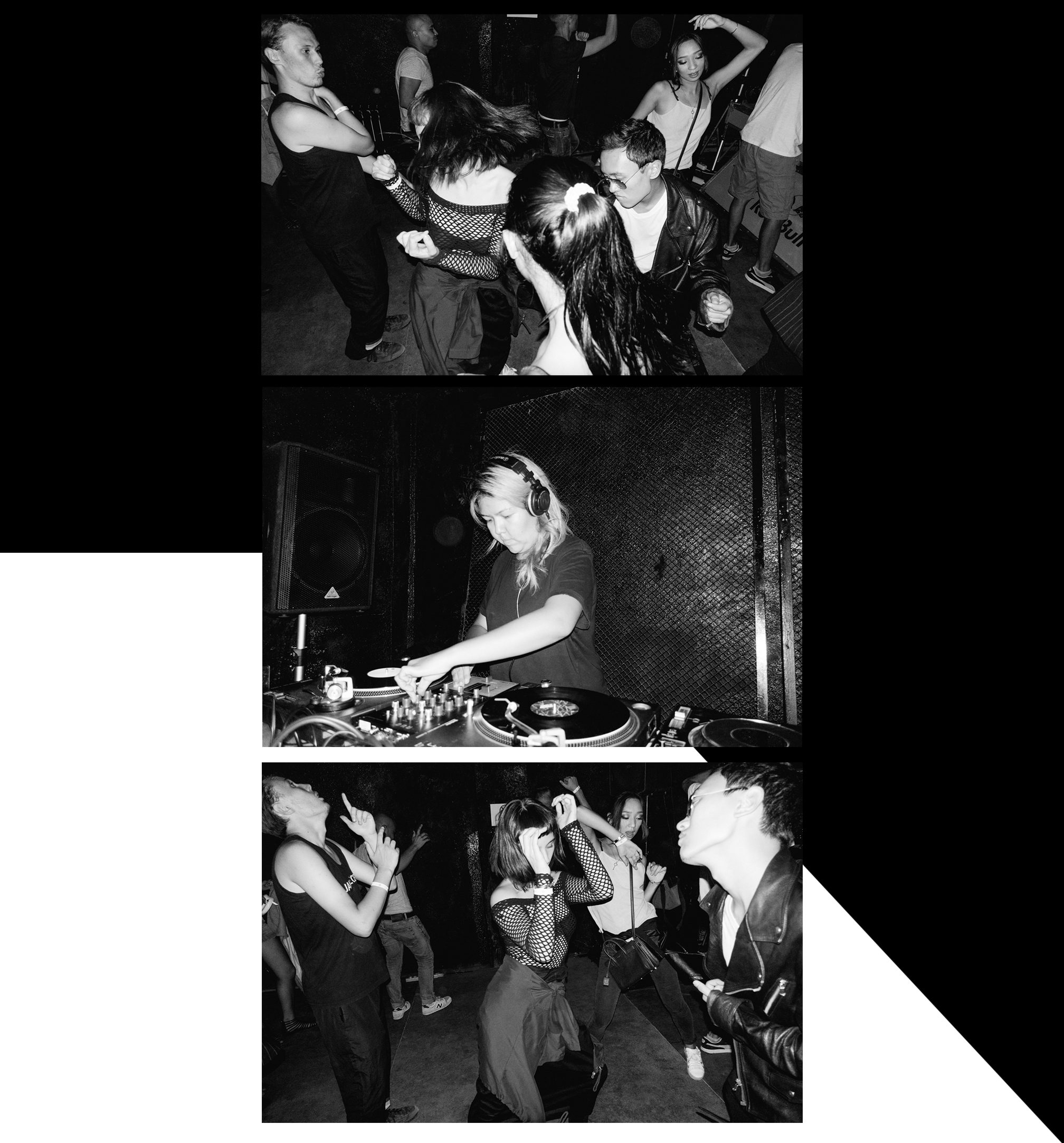
ZVUK employs a door policy that’s geared towards making it as safe and inclusive a space for self-expression as possible away from archaic attitudes. “I want it so you can be a freak on the dancefloor and no one is going to look at you,” says Nazira. “If I can see someone is making anyone else uncomfortable, they will be out instantly.”
Fostering a close-knit, interactive community plays a key role in growing the scene. Almaty drum ‘n’ bass artist Light Monday became interested in the fast-paced music when a school friend gave him a CD of recorded sets from Pirate Station festival. “It made my heart beat in a comfortable rhythm,” he says. He decided to study music in college and got into DJing and production. “At that time in my city there were not many musicians of a good level. But we all knew each other and exchanged information and experience. Now there are a lot of musicians,” notes Light Monday, who recently signed a track for release via Hospital Records this Spring.
Eldar Tagi, one half of experimental audio-visual duo the2vvo alongside Lena Pozdnyakova, also relied on pirate CDs to find music he enjoyed during youth. “I did always feel in a way like an outsider in Kazakhstan. Growing up I was drawn to weirder music,” he says. In 2002 while in ninth grade, Eldar went on a school visit to America with $100 of spending money. He laid out the lot on music, bringing home a backpack of nearly 30 CDs and making tagged copies at his school’s computer club. Years down the line he continuously meets people owning the exact copies made from his haul, still proliferating through the community.
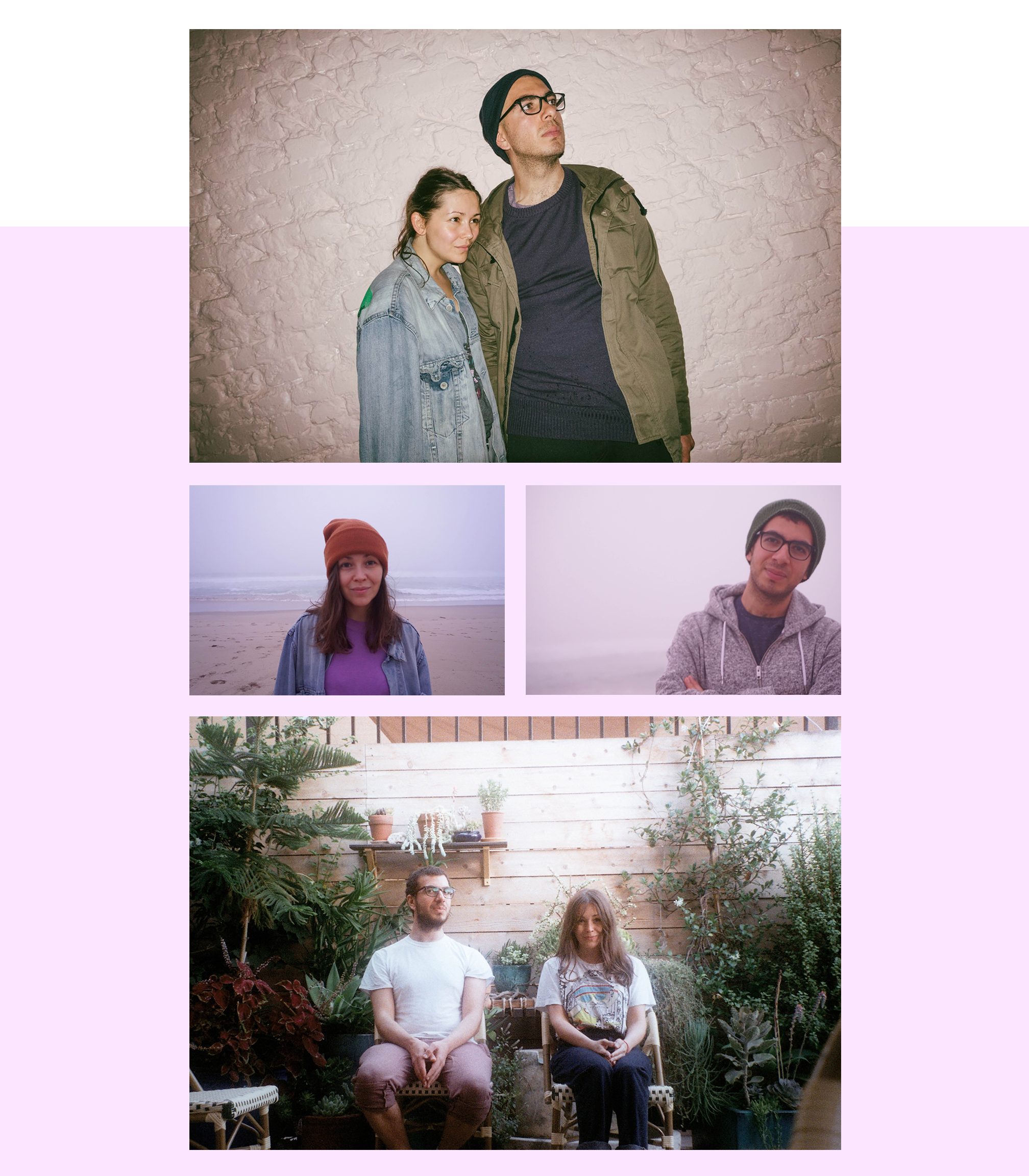
Musically the2vvo craft intimate textural trips. They soothe and excite, moving through spellbinding ambient, deluges of noise and angular tangents. Lena comes from an architectural and art background, and compares listening to experimental music to viewing artworks. “It challenges you, and you perhaps don't always get it straight away. You give yourself a chance to come back to it and get deep into what you're feeling, it’s very personal,” she says. During their improvised live performances Lena processes immersive visuals that complement the music in transporting crowds to higher realms of consciousness.
Last September the pair moved to LA. Eldar notes how it feels like his parents’ generation “were growing up in a place where they couldn't ever leave. The younger generation is very eager to accept foreign cultures and very eager for change.”
“In the past three or four years there has been more groups coming up that are trying to make parties and show a different side of electronic music,” says Eldar. “Everything is happening because people travelled somewhere and brought those experiences back.”
Rustam Ospanoff, founder of Jazzystan festival, “discovered the world of real music” after finding and reading a copy of Bill Brewster and Frank Broughton’s Last Night a DJ Saved My Life in Kazakhstan's British Council library. He later travelled to London, Tokyo and Rotterdam and experienced life-changing events like the North Sea Jazz Festival.
In 2009 Rustam launched Jazzystan, a concert series specialising in sounds in the field of jazz, funk, soul, disco and house that has booked the likes of Gilles Peterson, Marcos Valle and LeFtO to play in Kazakhstan. “I wanted to create something to make a shift in people’s consciousness because they were too closed in their frame of mind. They couldn't imagine that anything else other than Russian commercial music exists," he says.
Nazira got into electronic music while studying abroad at the University of St. Andrews, making regular excursions to clubs in Glasgow and London. “I frequently used to go to Sub Club,” she says, miming punching the ceiling with a laugh. “It was super emotional seeing that sense of freedom and unity” she adds, describing her first clubbing experience as the “good girl” from the conservative family. It inspired her to try implement positive change and build the scene in Kazakhstan.
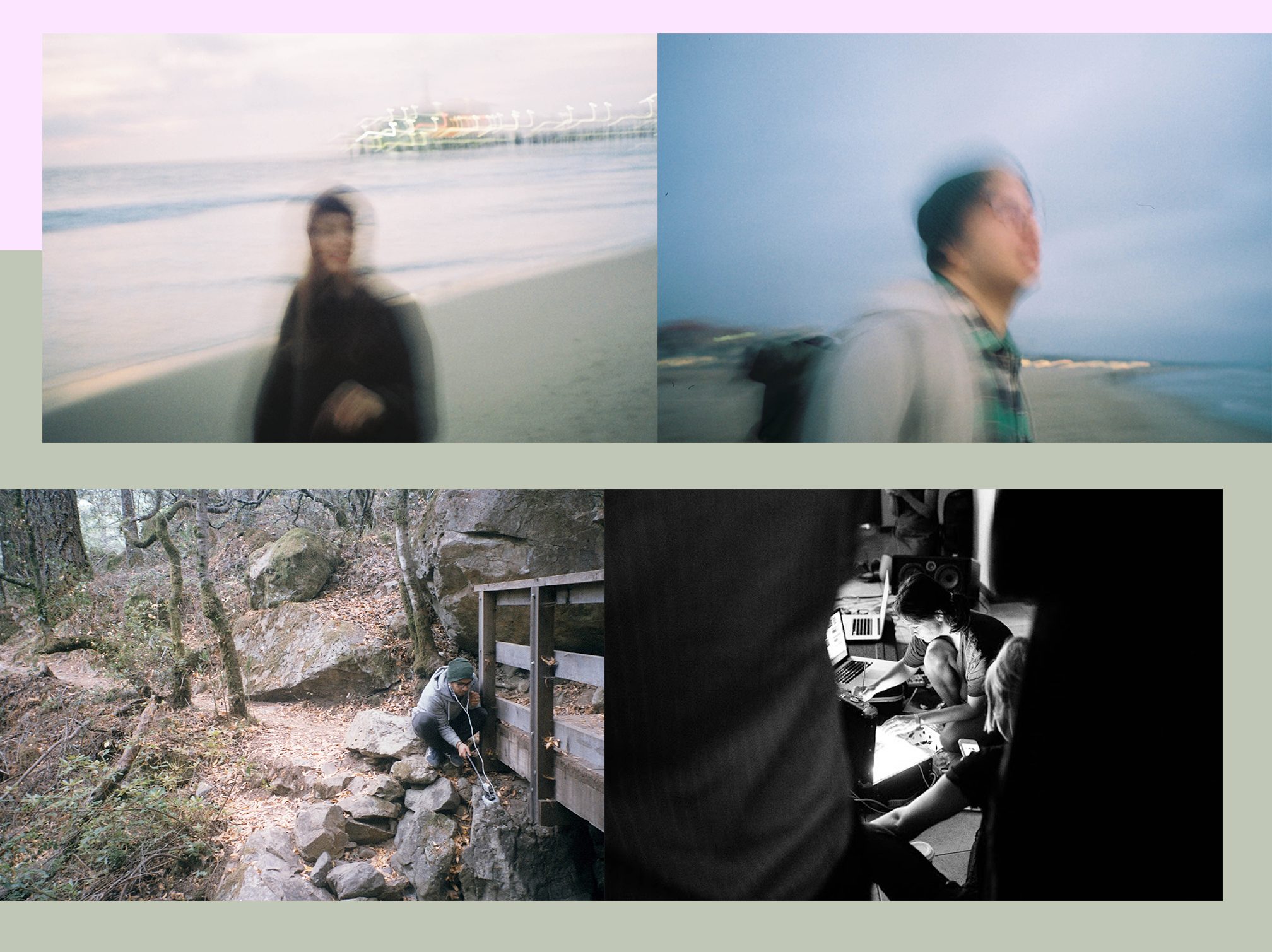
In May 2017, Unsound Dislocation headed to Almaty for a three-day festival of performances, panels and workshops. A line-up of head-spinning electronic artists were on display, including international innovators Atom™, Rabih Beaini, DON’T DJ and Kangding Ray alongside many ZVUK regulars. A packed crowd of 1,300 people comprising almost exclusively of Kazakhstani locals came out for the flagship party hosted in an old Soviet movie studio, getting down to the unconventional noises soundtracking the night.
“It was incredible, amazing. Because nothing of that sort happens in Kazakhstan,” says Nazira with palpable excitement. “You could see people being changed through experiencing new things. None of those artists were taking it easy on people.”
The2vvo admit they had been sceptical about the chances of success for a large-scale event of Unsound’s kind in Almaty, but were pleasantly surprised by the result. “Rabih Beaini played a really non-linear set. Very intricate, evolving, and bold in terms of raw sounds,” recalls Eldar. “People responded well, and even tried dancing to it which to me was a good sign. I feel [the scene] changing now, I would be really interested to see what happens in five years.”
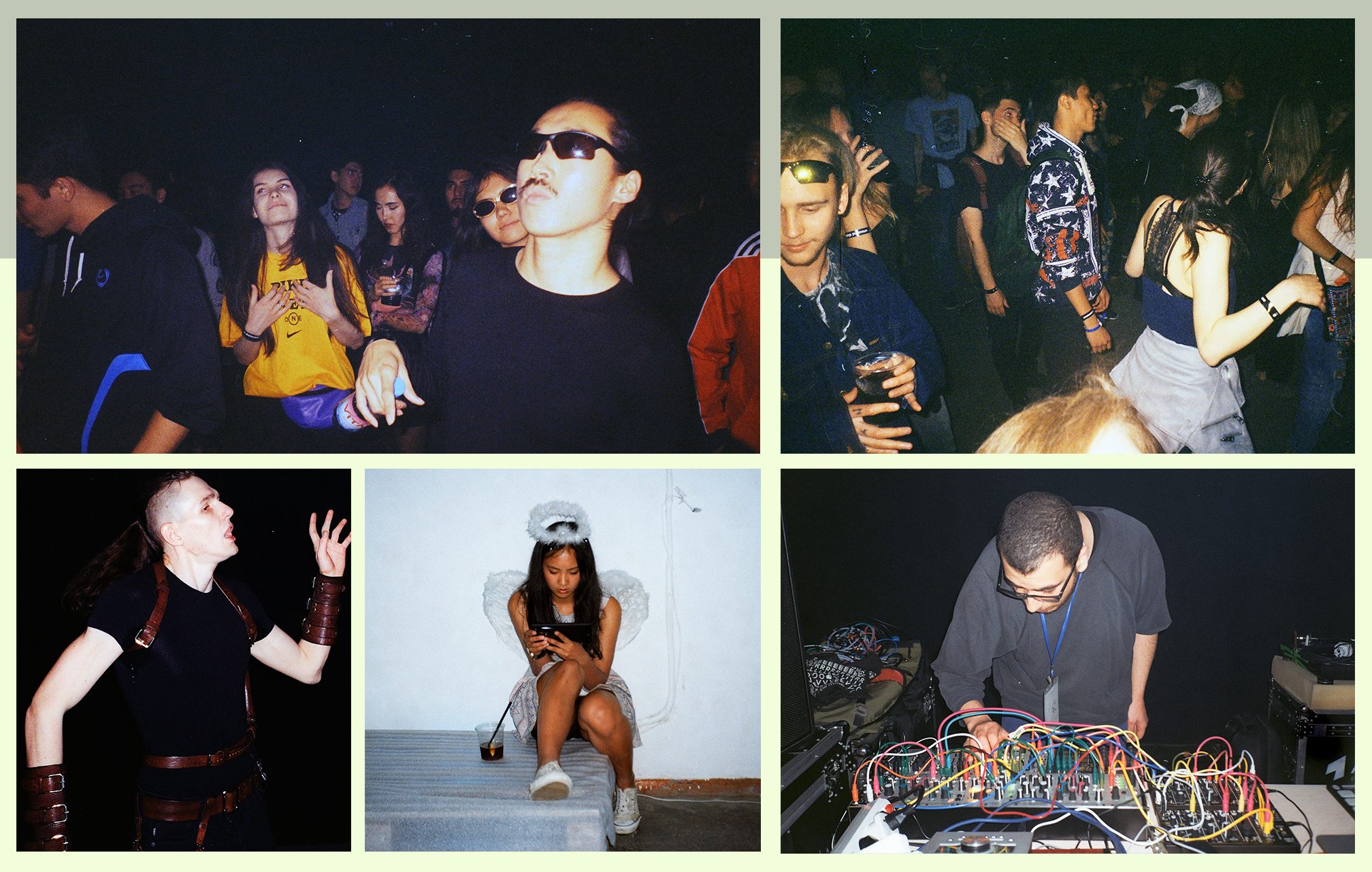
Eldar and Lena’s scepticism of attaining success in Kazakhstan’s music scene played a part in their decision to move overseas. They didn’t want to compromise and move into commercial territory in order to survive, noting that the most money made in the music business is earned playing cover songs at weddings. In 2013 Kanye West was paid $3 million to perform at the wedding of the President’s grandson.
While losing such important figures leaves a hole in the scene that is hard to fill, the2vvo consider that representing Kazakhstan abroad can raise the country’s profile on a global scale. “In LA we make an event and the first thing people ask you is where you're from. We say Kazakhstan, so it still gives this representation of the place, which may inspire somebody to travel there, now that the borders are much more open,” says Eldar.
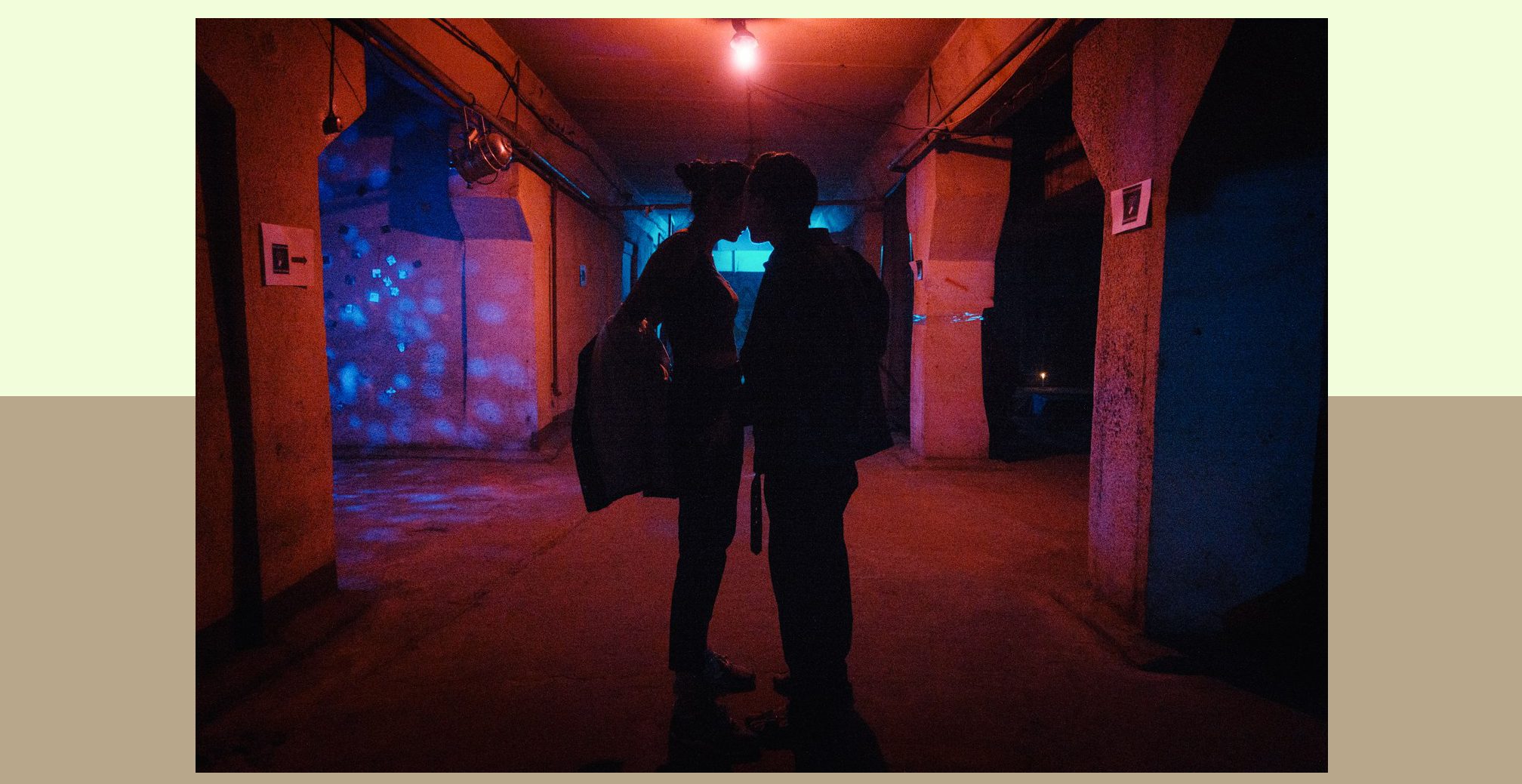
Rustam Ospanoff has also relocated to New York, but hasn’t lost sight of his home and is committed to progressing the scene. “Almaty is now really hungry for good music and ready for something new. Even now when I'm in New York I'm thinking of Almaty and connections I can make between the cities.” he says.
Nazira is also using her international links to spotlight underrepresented Eurasian talents. She has a residency on London-based Radar Radio, naming her show The New East. Across each show she plays the first hour, and invites a guest from the region to soundtrack the second. Artists from Kazakhstan, Poland and Kyiv have featured so far, and she’s planning to host people from Belarus and Kyrgyzstan in the future. “As much as I can, I try to invite artists who are overlooked even in their countries, so they have a chance to get some promotion and people have a chance to listen. If you look, there is so much variety in those countries,” she says.
A successful gig playing for the queer femme-promoting collective Room 4 Resistance last summer led to Nazira joining as a resident. Coyly, she seems excited by the potential to promote nights in the German capital and showcase The New East to new ears. “If someone goes to Berlin, they would be so happy, it will mean so much, so maybe in future,” she says.
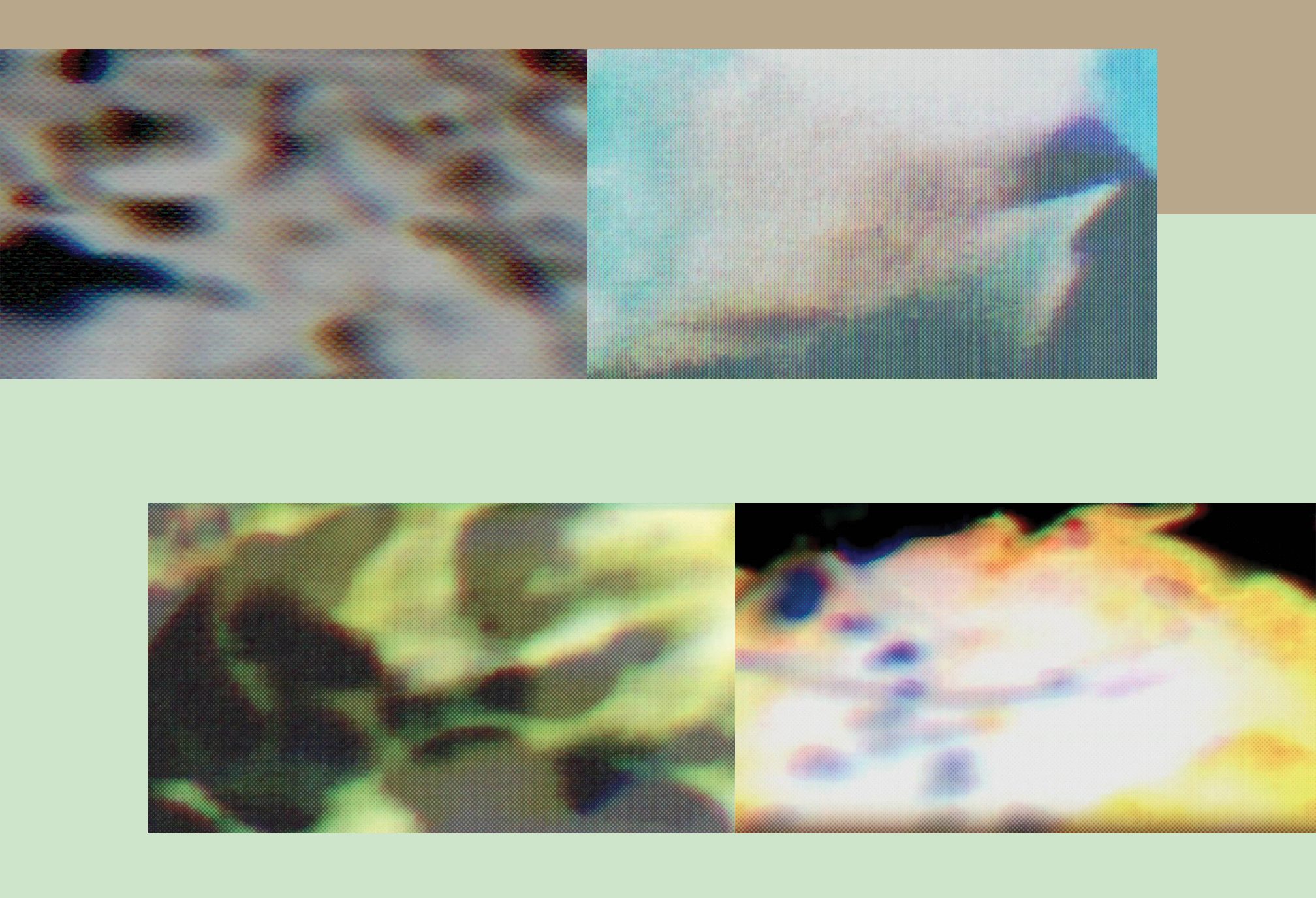
For now, though, Nazira is keeping her focus on building ZVUK’s standing in Kazakhstan, throwing bigger parties with higher profile international guests to play alongside the local talents. “I want to concentrate on doing parties here for the locals, because there is a lot still to do,” she says. With exciting artists working in the region, a network of expats flying the flag overseas, and events such as ZVUK and Unsound Dislocation successfully inspiring a new generation, the signs of a movement gathering pace are tangible.
“For some periods of time I am really frustrated because it can be really difficult,” admits Nazira. “But to see all those people who are there and are really grateful - you can see that people really need that. I feel really strongly about keeping doing what I'm doing.”
[Photography credits: Almaty landscape: Maya Baklanova & Dastan Zhumagulov / Unsound Discloation: Yura Matsiyun]
Patrick Hinton is Mixmag's Digital Staff Writer. Follow him on Twitter
Lawrence Abbott is an artist and freelance creative designer. Follow him on Twitter


